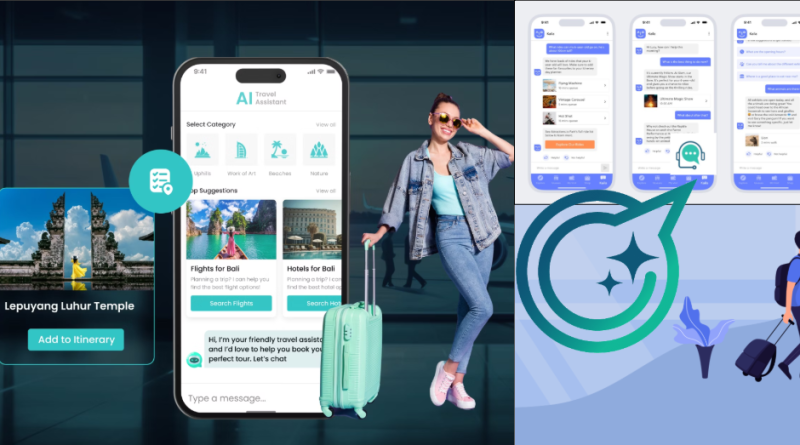How an AI Assistant Saved My Vacation—and Why Every Travel Website Should Have One
It was a chilly spring evening in Lisbon. I had just arrived after a long day of travel, excited to settle into the charming apartment I had booked for my getaway. But as I stood in front of the building, suitcase in hand, I realized I had a problem: the keypad entry system wasn’t working as expected, and I couldn’t reach the host. My phone calls went unanswered, and I was starting to panic.
Just as I was considering finding a nearby hotel, I remembered the website where I had booked the apartment had a chat feature. Desperate, I opened it and typed in my issue. To my surprise, an AI assistant responded instantly—in Polish, my native language. It calmly guided me through the process, explaining that the door code needed to be entered in a specific way. Within minutes, I was inside, safe and warm.
That night, I realized how invaluable AI assistants can be in the travel industry.
AI Assistants: Making Difference for Travelers and Tourists
The travel and tourism industry is rapidly embracing artificial intelligence (AI) to enhance customer experiences. AI assistants, often in the form of chatbots, are becoming common on travel websites, providing real-time support and information to travelers.
According to a recent Madden Media puboication, 19% of travelers used AI for travel planning in the last six months, up from 14% earlier in the year. Additionally, 34% of travelers now say it’s likely they will use AI to book their next trip . These intelligent systems can handle a variety of tasks, from answering frequently asked questions to assisting with bookings and providing personalized recommendations.
The Growth of AI in the Travel Industry
The AI in tourism market is experiencing significant growth. Valued at approximately USD 2.95 billion in 2024, it’s projected to reach USD 13.38 billion by 2030, reflecting a compound annual growth rate (CAGR) of 28.7% . This surge is driven by the increasing demand for personalized and efficient travel experiences.
AI-powered chatbots are now handling approximately 80% of customer service interactions in the tourism industry, sttes an article in Artsmart.ai . These virtual assistants can manage bookings, provide travel information, and even assist with itinerary planning, all in real-time.
The Importance of Human-Supervised AI
While AI assistants offer numerous benefits, it’s crucial to ensure they operate reliably and ethically. Human-supervised AI systems, where human experts monitor and refine AI behavior, are considered the most reliable and secure. These systems combine the efficiency of AI with human judgment to handle complex or sensitive situations effectively.
For instance, GuideGeek, an AI travel assistant, achieved a 98% accuracy rate by incorporating reinforcement learning from human feedback . This approach ensures that the AI continues to learn and improve, providing travelers with accurate and helpful information.
Benefits for Travel Businesses
Implementing AI assistants on travel websites offers several advantages:
- 24/7 Customer Support: AI assistants can provide immediate responses to customer inquiries at any time, enhancing customer satisfaction.
- Cost Efficiency: By automating routine tasks, businesses can reduce operational costs and allocate human resources to more complex issues.
- Personalized Experiences: AI can analyze customer data to offer tailored recommendations, improving the overall travel experience.
- Increased Engagement: Interactive AI assistants can engage users more effectively, leading to higher conversion rates.
For example, Maya, an AI agent for travel companies, has been shown to collect 25% more leads and double user engagement.
Well, my Lisbon experience highlighted how AI assistants can be a lifeline for travelers in need. As the travel industry continues to evolve, integrating AI assistants into tourism websites is not just a technological upgrade—it’s a necessity for enhancing customer service, improving efficiency, and staying competitive.
For businesses in the travel sector, embracing AI assistants means providing better support to customers, streamlining operations, and creating more personalized travel experiences. As AI technology continues to advance, its role in shaping the future of travel will only become more significant.
